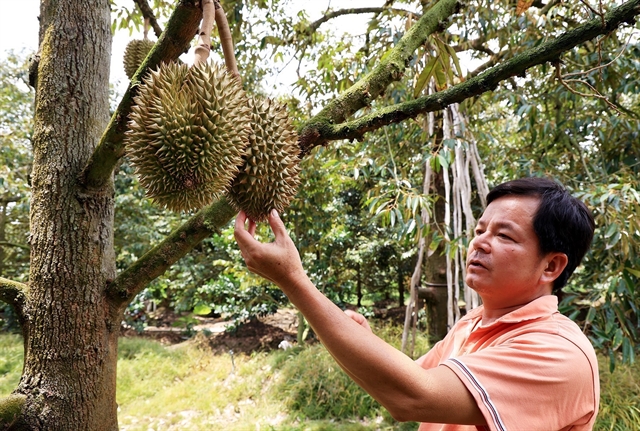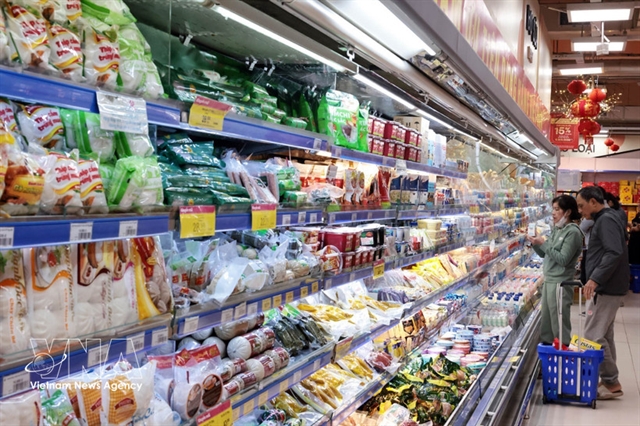 Economy
Economy


|
| In 2023, Việt Nam's durian was mainly exported to China with $2.03 billion in value. — VNA/VNS Photo Hồng Đạt |
HÀ NỘI — Việt Nam now has 876 durian growing areas and packing facilities issued with codes eligible for export to China by the General Administration of Customs of China (GACC).
This helps create favourable conditions for promoting durian exports to this market in the future.
Vietnamese durian has the advantages of high output and year-round harvest. Another advantage is to have a shorter time to ship durian to China.
In 2023, according to the General Department of Customs, Việt Nam's total export value of fruits and vegetables reached US$5.6 billion, an increase of 66.7 per cent compared to the previous year.
This export result was due to the sudden increase in durian exports which reached $2.1 billion, compared to $288 million in the previous year.
Of which, Việt Nam's durian was mainly exported to China with $2.03 billion in value, accounting for 99.4 per cent of the country's total export value of this product group.
The fruit and vegetable exports in the first two months of this year continued to grow strongly by more than 70 per cent to $970 million with key products such as fresh coconut, dragon fruit, grapefruit, bananas, lemons, vine, mango and durian. Durian was still the dominant product.
Along with reaching standards from demanding markets such as the US, Europe and Japan, Vietnamese fruits and vegetables are having many opportunities to accelerate exports.
At present, Việt Nam and China are completing procedures to open the market for coconuts and frozen durians. That is expected to help the export value reach $6.5 billion in 2024.
According to the Plant Protection Department under the Ministry of Agriculture and Rural Development, by the beginning of 2024, the durian growing area in the Southern provinces reached 62,173 hectares; 15,000 hectaresx higher than that in the same period of last year, the Đầu tư (Investment) newspaper reported.
The South Central Coast and Central Highlands provinces now have 57,101 hectares of growing durian, an increase of more than 19,200 hectares year on year.
Meanwhile, the durian market demand can reach $20 billion in China and $28.6 billion in the world by 2025. This is considered a great opportunity for Vietnamese durian if the domestic durian industry is developed according to the sustainable direction in the future.
To expand the durian export market, growers and businesses need to focus on improving quality, as well as the stages of preservation, preliminary processing, and processing to add value, besides expanding the areas. — VNS




